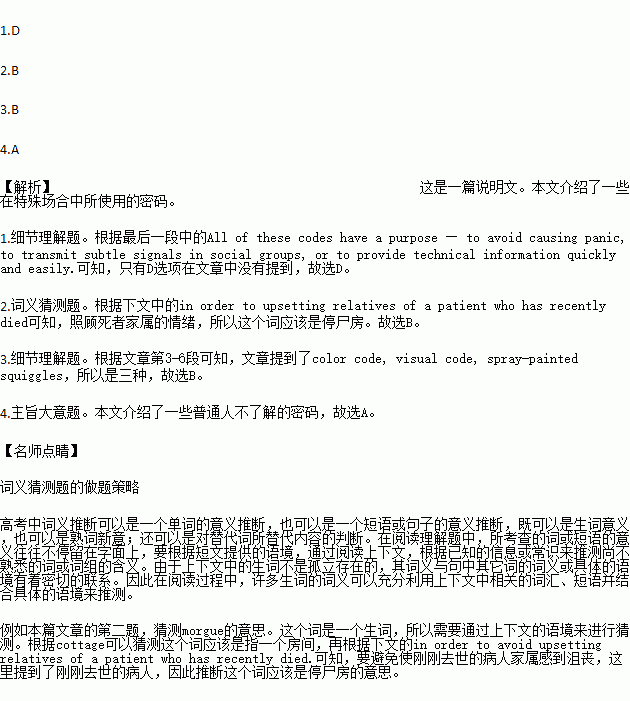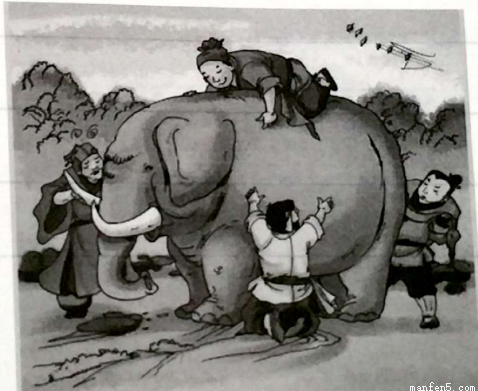题目内容
“Inspector Sands to the control room, please.” If you ever hear that at a British train station, don’t panic. But you might appreciate knowing that this is a codeword meant to inform staff that there is an emergency somewhere in the building. The idea is to avoid causing alarm among commuters(通勤者), but still get the message out to those trained to deal with the problem.
The subject of secret codewords like this was raised this week on Reddit, and the discussion has attracted thousands of examples. But what codewords and signs are really out there in the wild?
A good place to start is hospital emergency codes. These are often colour-coded, and one health centre in Canada has published its list online. “Code red” announces a fire, “code white” indicates a violent person while “code black” means a bomb threat is active. It’s been reported that hospital staff sometimes refer to the morgue as “Rose Cottage”, in order to avoid upsetting relatives of a patient who has recently died.
“I can see very good reasons for having these codes,” says Paul Baker, a linguist at the University of Lancaster. “It may be that people are unsure when they’re giving the code so there’s no point upsetting members of the public.”
Not all codes are alphanumeric(字母数字混合的). Some are visual, intended to be hidden in plain sight. As BBC Future discovered earlier this year, many banknotes feature a specific pattern of dots placed there to prevent people from photocopying money. Many copiers and scanners are programmed to spot it.
And finally, the spray-painted squiggles(扭曲的线条) you see on pavements in towns and cities all over the world are codes understood by construction workers and engineers. For example, in UK, different colours are related to different types of cable or pipe. Blue meant a water system while yellow indicated gas lines and green labelled CCTV or data wiring.
All of these codes have a purpose — to avoid causing panic, to transmit subtle signals in social groups, or to provide technical information quickly and easily. “People don’t like secrets, do they?” says Baker. “There is a drive to have as much information as possible — we do live in the information age,” he adds.
1.The following are purposes of the secret codes except ________.
A. to avoid causing alarm and panic among the public
B. to send sensitive signals in social groups
C. to provide technical information quickly and easily
D. to make people believe you are wiser
2.The underlined word “morgue” in Para. 3 refers to the room in a hospital ________.
A. where patients are treated
B. where dead bodies are kept
C. where a patient has an operation
D. where a surgeon cuts open the patient in case of emergency
3.How many kinds of secret codes are mentioned in the passage?
A. 2. B. 3. C. 4. D. 5.
4.Which of the following could be the best title of the passage?
A. The Secret Codes You Probably don’t know
B. Where to Find the Codes
C. The Origin of Different Codes
D. Secrets in the Modern Society



